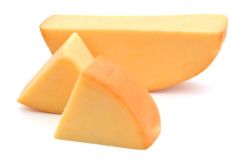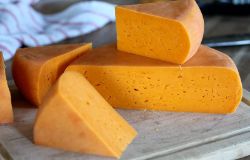Yogurt Nutrition facts
Yogurt

Yogurt is a popular dairy product prepared from the fermentation of milk. Herdsmen of the Bulgarian countryside were thought to have learned the art of processing milk to yogurt first.
Yogurt's use dates back to many centuries prescribed for its prebiotic and easy digesting properties. Preparation and consumption of different types of yogurt are in prevalence unique to various cultures and traditions the world over.
Although cow's milk is employed to a larger extent in processing yogurt, it can also be prepared using buffalo, goat, sheep, and soy-milk, to which a starter culture is added.
Similar Food
-
 American cheese 334 Cal
American cheese 334 Cal -
 Brie 334 Cal
Brie 334 Cal -
 Cheddar 410 Cal
Cheddar 410 Cal -
 Colby 394 Cal
Colby 394 Cal -
 Cottage 84 Cal
Cottage 84 Cal
Source of Calorie
61
Calories
-
Carbs4.66 g 30%
-
Protein3.47 g 22%
-
Fat3.25 g 48%
How long to burn off 61 Calories?
*Approximate base minutes for a 25-year-old, 65 kg adult at moderate intensity.
Swimming
10
min
Jogging
9
min
Cycling
9
min
Walking
15
min
| Nutrition Principle | Nutrition Value | Percentage of RDA |
|---|---|---|
| Principle | ||
| Energy | 61 Kcal | 3% |
| Carbohydrates | 4.66 g | 3.5% |
| Protein | 3.47 g | 6% |
| Total Fat | 3.25 g | 16% |
| Cholesterol | 0 mg | 0% |
| Dietary Fiber | 0 g | 0% |
| Vitamins | ||
| Folates | 7 μg | 2% |
| Niacin | 0.075 mg | <10% |
| Pyridoxine | 0.032 mg | 2.5% |
| Riboflavin | 0.142 mg | 11% |
| Thiamin | 0.029 mg | 2.5% |
| Vitamin A | 99 IU | 3% |
| Vitamin C | 0.5 mg | <1% |
| Vitamin E | 0.06 mg | <1% |
| Vitamin K | 0.2 µg | <1% |
| Electrolytes | ||
| Sodium | 46 mg | 3% |
| Potassium | 155 mg | 3% |
| Minerals | ||
| Calcium | 121 mg | 12% |
| Copper | 0.009 mg | 1% |
| Iron | 0.05 mg | <1% |
| Magnesium | 12 mg | 3% |
| Manganese | 0.004 mg | <1% |
| Zinc | 0.59 mg | 5% |